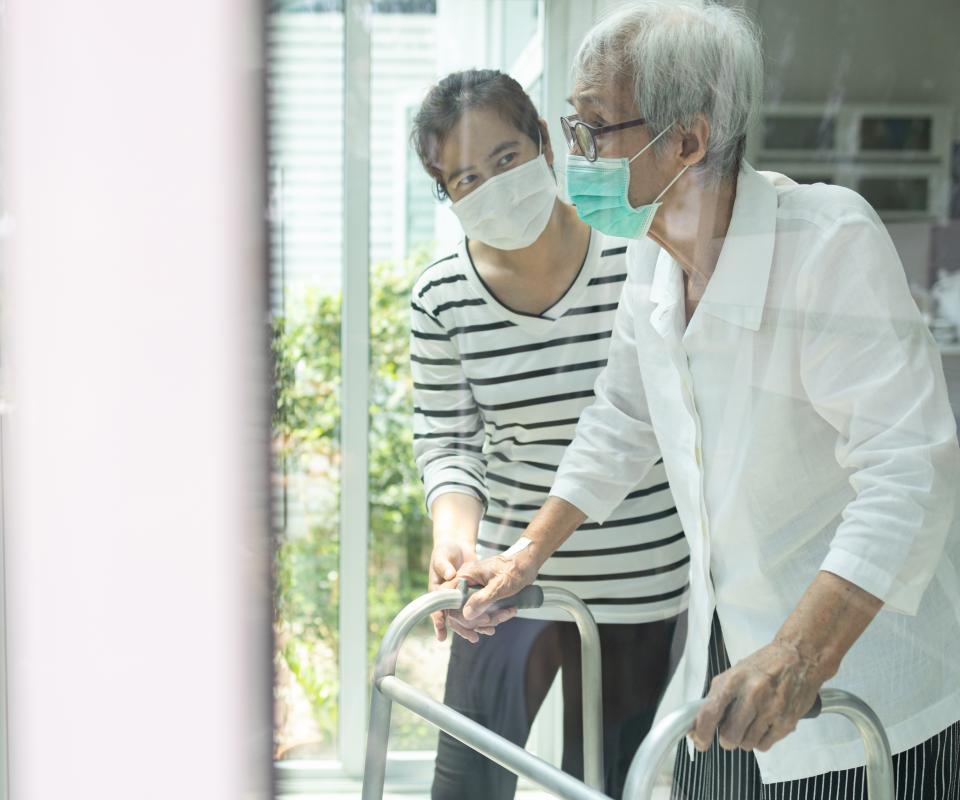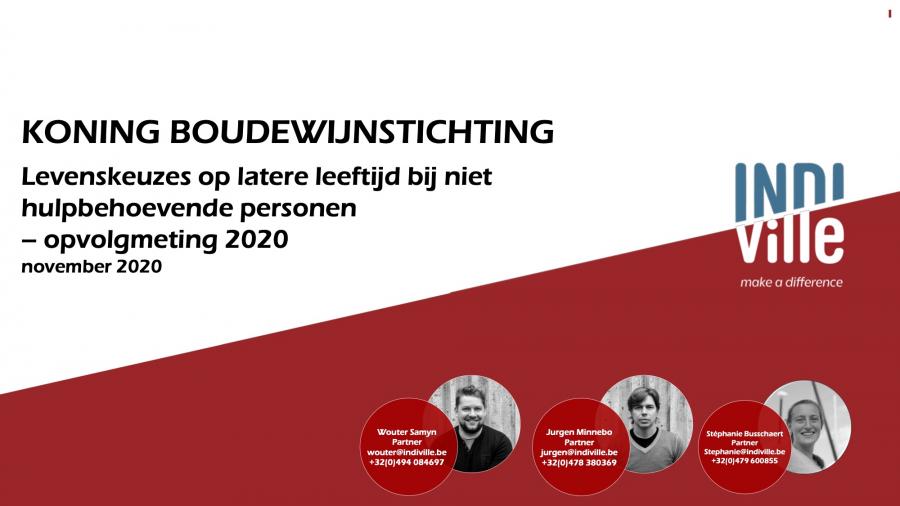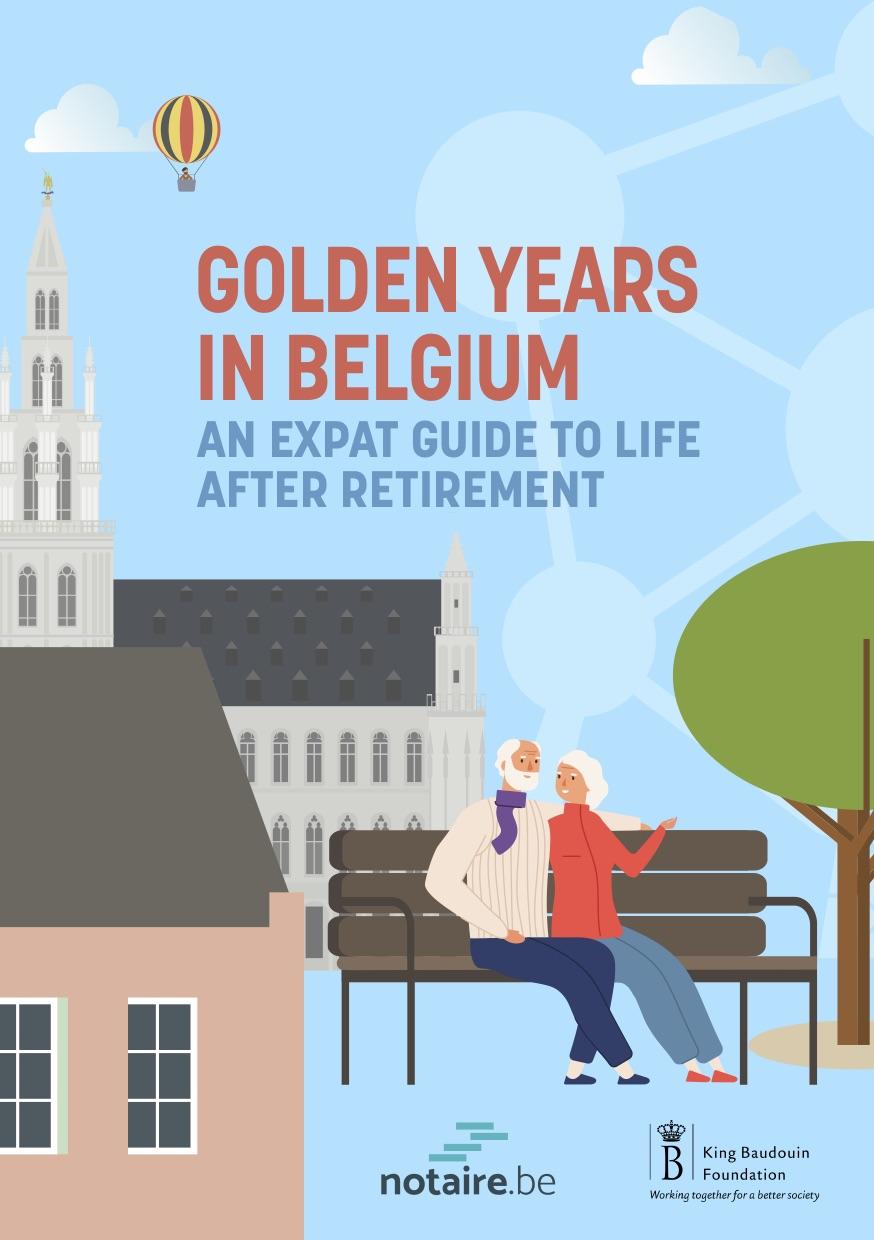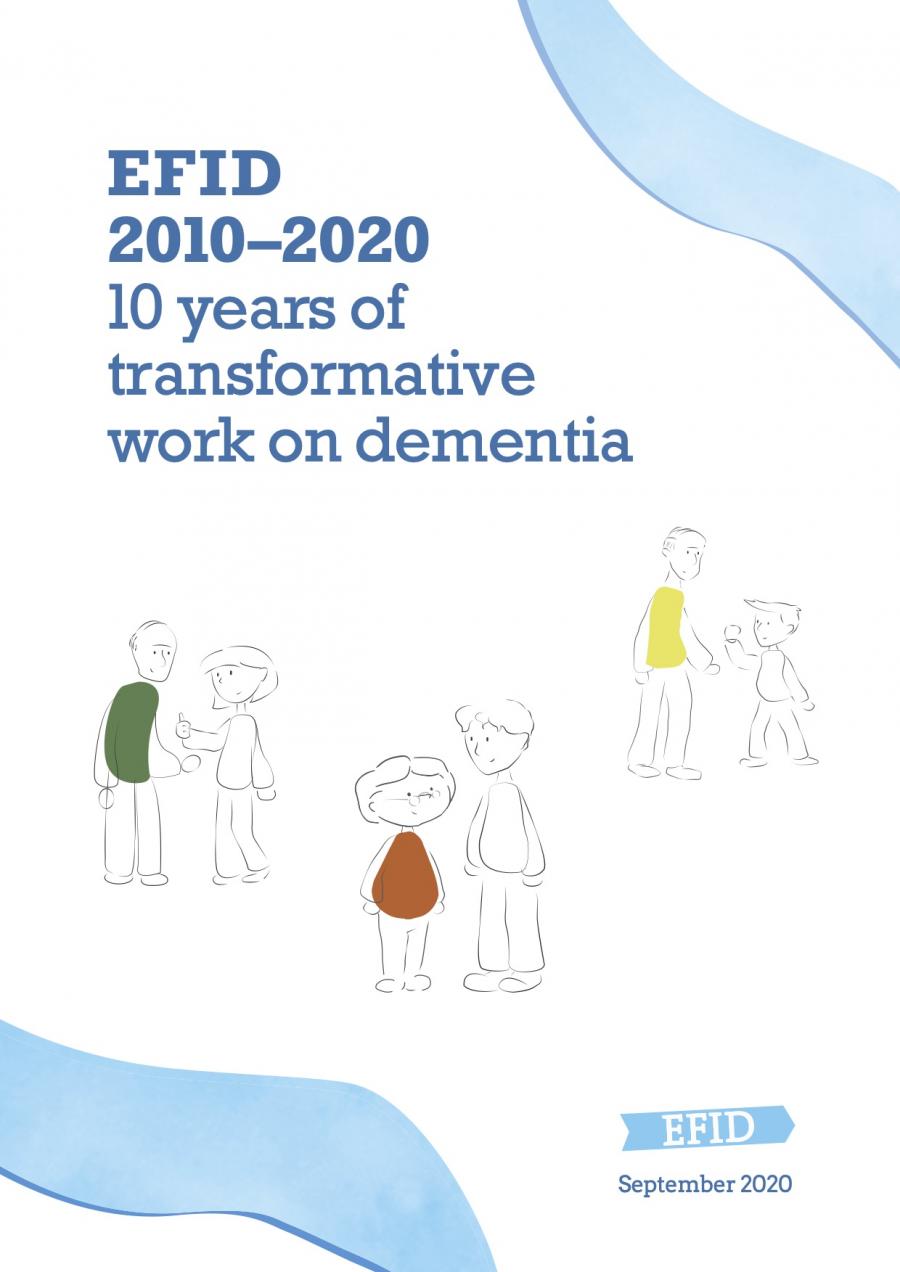
Care home with a vision on quality care refuses to be overwhelmed by virus
“We put even more emphasis on contacts between the residents and contacts with care staff.”
The power of Tubbe during the coronavirus pandemic
“When we see ‘care homes’ as they are presented by the media, we cannot see ourselves in that picture.” How are care homes that follow the Tubbe approach coping with the coronavirus? Is the vision of warm relationships and co-decisions by residents still alive during this health crisis? Yes, a leadership with vision and creativity and a lot of communication can prevent the virus from taking over in these care homes, allowing the management, staff and residents to stay in control.
For a few years now the King Baudouin Foundation has been promoting the Tubbe approach in care homes (more information is available via the links in the margin). The Foundation learned about this approach in Sweden, set up a pilot project with six care homes in Belgium and - based on their positive assessments - started to work alongside coaches to introduce the Tubbe approach, which is now being introduced in almost 80 care homes.
Leaders of some of those six pilot projects, leaders of the Swedish care home and a number of coaches gathered around a virtual table (end of August 2020) to discuss how they are coping now, in the COVD-19-crisis.
Fear and immobility
“Initially there was a lot fear and chaos”, begins Lilian Hansson from Sweden. “Residents and staff were afraid. How should we reorganise our routines? We were receiving new instructions from the government all the time. So it took us a few weeks to calm down again”, she admits. This sounds very familiar. “There was a lot of fear here too”, says Renaat Lemey, Managing Director of the Open Kring (Open Circle) care home in Ardooie. “For the first few weeks a lot of things just stopped: no visitors, no outings, no major activities etc. In May and June, however, we started to adopt a different mindset: we will make everything safe but carry on with our lives.”
“That’s right, of course you do have to cancel major activities. From the beginning, however, we also stayed very close to our residents”, says Leen Plessers, care home coordinator in Sint-Jozef in Pelt, “with even more emphasis on contacts between the residents and contacts with care staff. In one sense it was a lovely, friendly time.”
Not losing control
Open Kring and Sint Jozef have not had any infections yet, but Floordam in Melsbroek has had some. The care home there has 150 residents, who live in 11 separate buildings. Some of the people living in two different buildings became infected. Ruben Callewaert: “We used one building as a cohort house. It did look more like a hospital, with all the - frequently changing - safety rules. It was a very difficult time, but we still didn’t feel that we were losing control. We continued to provide a high quality of care. At the same time, life went on in the other houses. There were no visitors, but that also set us free to have more individual contact. After about eight weeks we had no infected residents, so we were able to go ‘back to normal’ there too.”
Leadership and vision
Tending the vegetable garden together or arranging flowers. Enjoying a coffee and chat in the sunshine. Outings on a tandem or in a rickshaw. A performance by a musician in the garden. A visit from an ice cream van or mobile chip shop one afternoon. Photography projects involving copying paintings or old fashion photos. And so on. With a bit of creativity they were able to maintain a lively atmosphere.
As a coach who works with care home managers, Mieke Vandorpe was involved and monitors all the news in the media. “In my view, a leadership with a vision is what makes the biggest difference: where people work to improve the residents’ quality of life on the basis of a vision - whether it is Tubbe or any other vision – they are looking to see what can still be done. They don’t just freeze and stare at what is coming towards them, and they are not immobilised by fear. I like a metaphor that I read somewhere: a ship is safest in the port, but that’s not what it is made for.”
“As leaders you have to deal with that fear and help people to feel safe first”, says Sara Johansson from Sweden. “Listening to our residents and staff and keeping them well informed. Since things have calmed down, we are mainly focusing on combating loneliness through more individual contact and with activities in smaller groups.”
Having a say
The key principle behind Tubbe is letting people have a say and co-creation: running the home together. Due to the need to introduce rules quickly, that principle sometimes did suffer, even though the staff were able to make adjustments. “In the first phase people even had to stay in their rooms to have their meals”, says Ruben Callewaert by way of an example. “We noticed that people with dementia missed seeing other people eating around them. The staff found a solution by positioning each person in the doorway of their room, so that everyone could see the person opposite. That did make a difference, and the principle was adopted in other care home groups too.”
Despite the strict context, there was still scope for listening to the residents. Leen Plessers: “We have had a residents’ working group looking at quality for a long time. During this crisis it met even more often than usual, to help to look at how we were putting the rules into practice.” “We also do that when it comes to the rules on visitors”, adds Renaat Lemey.
Communication
The rules on visiting... In the past the menu was always the main topic of conversation, but now it is visiting. That means contact with families, which is essential in order to speak of quality of life at all. “It led to some very emotional moments in the residents’ working group”, says Leen Plessers. “Only being able to see one family member was too much for them.” Everyone tries to find a balance between psychological well-being and safety, trying to arrive at a set of rules that have the support of residents, staff, GPs and family members.
This has been done successfully, but it still represents a serious restriction. Even more communication is one way of dealing with this. “Family members want reassurance. They want to know how things are going, what is happening inside the home”, says Ruben Callewaert. “They want to know about the good times, of course, but we have also communicated a lot about infections during that period.”
There was plenty of material on social media, websites and newsletters. Paper publications still have a role too, and residents’ papers now include even more photographs because each ward has to stay in its own ‘bubble’.
On a small scale
These people have learned a lot through their experiences, and they have become convinced of the value of organizing care on a smaller scale, something that has often been mentioned during this health crisis. This is important when it comes to creating a homely atmosphere, and also when it comes to keeping people safe. “If we were a home with long corridors, we would definitely have had a bigger outbreak”, says Ruben Callewaert. Working with a hospital hygienist from a nearby hospital helped them to avoid medicalising the care home too much.
So you need some kind of scale to build up knowledge. Dividing up an institution into groups in which people live relatively independently, and then sharing knowledge between them, seems to be a good compromise. “After all, it still needs to be a home!”
Other stories
Inspiring engagement!

A combat game against COVID-19
Healthy ageing
"This game is a good way to raise awareness among the personnel and residents about the risks associated with not respecting hygiene rules."
Other calls

Generet (Fund)
A prestigious award of 1 Million euros to encourage groundbreaking research in rare diseases in Belgium for a better quality of life of patients.

Generet (Fund)
A prestigious award to encourage groundbreaking research in rare diseases in Belgium for a better quality of life of patients.
Selection announced
Grant for research in geriatric medicine
Grant for research in geriatric medicine by the Funds Marie-Thérèse De Lava & Robert Schneider
Selection announced

